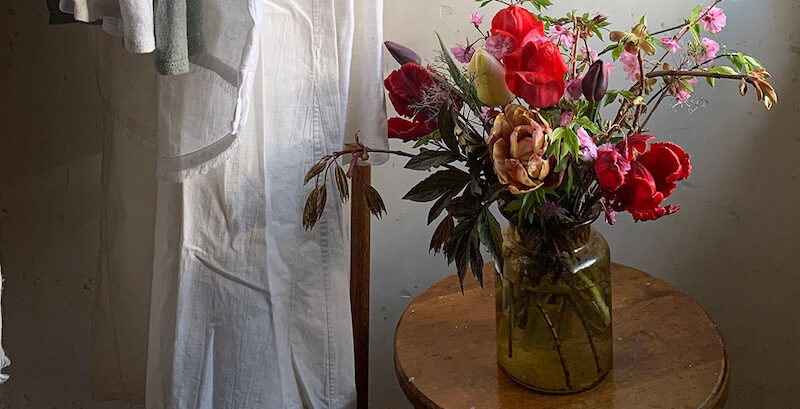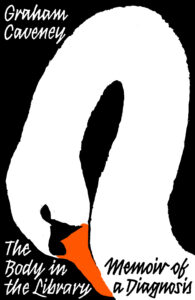
What Illness Can—and Cannot—Tell Us About Ourselves
Graham Caveney on Cancer, the Body and the Philosophy of Mortality
“All disease begins in the gut.”
–Hippocrates
*Article continues after advertisement
The stomach is an organ that seems to have a life—a logic—of its own.
It commands respect, settles arguments, always gets the somatic last word. Employ all the logic you like, but if someone references their guts they are unassailable. Guts are primal, guarantors of authenticity, conduits of instinct. Show some guts you gutless bastard, trust your gut. There is nothing more to be said. In our hierarchy of body parts, the stomach comes second only to the heart.
Her stomach “was the one obvious sign of her humanity,” writes Goncalo Tavares of a character in his novel Jerusalem, “and likewise of her rather ambiguous relationship with the things in the world she still couldn’t understand.”
Stomachs are uncanny; impossible to determine where they begin and end. Conduits for throat and anus, yet separate from them: they are both central and liminal. A biologist friend of mine once told me that we should think of the stomach as an external organ.
I can applaud the idea of the autonomous patient all I like… Yet my illness has exposed the limits of such thinking.
As a child my stomach was my site of resistance, a default setting for whatever unwellness was on offer. If I was going to be ill, it was in the stomach, the magical palace of appetite. My stomach could turn somersaults; it was a place where butterflies lay dormant.
*
The body and its metaphors are making an intellectual comeback. We now listen to the body with a poet’s ear. Osteopathy is the new black. Zen and the Art of Motorcycle Maintenance has been replaced by The Body Keeps the Score. Emotions are both semantic and somatic. If you feel like you are banging your head against a brick wall, it should not be surprising that you have headaches. Back pain besets those carrying the weight of the world on their shoulders. Kidney problems befall the deeply pissed off. Skin problems afflict those with intimacy issues. Bowel problems are linked to a particular world view, conclusive evidence that everything turns to shit.
Descartes has become the bad guy, mind-body dualism one of the more un-enlightened hangovers of the Enlightenment. Health professionals now recognize symptoms as metaphors, the communication of deeply buried emotional needs. Medicine has caught up with therapy.
You say you have a fever, a headache, a chill. What is it you are trying to tell me?
The language we use about our ailments is never merely descriptive. It can unwittingly reveal their cause. Our words point to what we owe to our bodies, what we expect from them. Etymology as biology. It is a truth universally acknowledged: We need to listen to what our bodies are telling us.
Before my diagnosis I was interested in these developments, applauded the challenge to medical orthodoxy. The joining up of health and humanities struck me as a profitable encounter for both, an attempt to broaden the contexts for illness and agency. That was before I got cancer.
Because what is my tumor telling me? That there are things about myself I find difficult to swallow, emotions I am unable to digest? That my anger produces acids which have corroded the lining of my stomach? That I have a phlegmatic personality, negative energy, excessive bile? True, true and true again. But my body is also telling me it has cancer.
So while the writer in me may be intrigued by the new age revolution, the patient is horrified. When, in our first session, my palliative nurse offered me four free sessions of reiki, I was outraged. The laying on of hands? I wanted medicine not miracles. Thus does a closed mind accompany my ever-closing oesophagus.
“When men choose not to believe in God” remarked GK Chesterton, “they do not thereafter believe in nothing, they then become capable of believing in anything.” Yet reiki is not the issue. Reiki, reflexology, head massage, acupuncture, crystals, juicing, vitamin supplements are smokescreens for cutbacks, of make do and mend. Complementary therapies need something to complement; things that cost money, time, expertise, research, peer reviews, science. The same politicians who insist there is no magic money tree are keen to embrace other forms of magical thought. Especially when they are cheap.
“Like superficial spirituality, looking on the bright side of things is a euphemism used for obscuring certain realities of life, the open consideration of which might prove threatening or dangerous to the status quo,” wrote Audre Lorde in The Cancer Journals:
“Last week I read a letter in a medical magazine which said that no truly happy person ever gets cancer. Despite my knowing better, and despite my having dealt with this blame-the-victim thinking for years, for a moment this letter hit my guilt button. Had I really been guilty of the crime of not being happy in this best of all possible infernos?”
Forty plus years later and the regime of compulsory positive thinking seems complete, a coup we welcomed with open arms. We were eager for as much of that Californian-can-do as we could get.
Awesome! Amazing! Just do it! By their exclamation marks shall you know them—those unstoppable substitutes for thought. Think y’self fitter! And if that fails, you must just not have done it right.
The deification of the doctor is a thing of the past, the butt of a joke. Now it seems their expertise is just one opinion amongst many. It leaves me yearning for a paternalism I used to abhor. I can applaud the idea of the autonomous patient all I like—empowered, informed, in control of their own decisions. Yet my illness has exposed the limits of such thinking. What I really want is hierarchy: people in white coats who know more than I do.
*
“It is possible to know great truths without knowing the truth of them.”
–Marilynne Robinson, Home
Illness is a kind of homecoming, a hibernation within the warm folds of childhood. I am on the lookout for certainties, will settle for familiarities. Phrases of my mother’s bubble up unbidden: “God Willing,” “If I’m still here,” “Who knows what the future holds?” Such platitudes enraged me as a teenager. They seemed proof that no thought went into her thinking, just semantic knee jerks designed to keep reflection at bay. It was like she spoke in order not to say anything.
I do not believe that cancer is an act of God—neither test, punishment or salvation.
I was like the daughter in Flannery O’Connor’s “Good Country People,” a story about an only child’s dissatisfaction with her mother: “Nothing is perfect. This was one of Mrs Hopewell’s favorite sayings. Another was: that is life! And still another, the most important was, well, other people have their opinions too. She would make these statements, usually at the table, in a tone of gentle insistence, as if no one held them but her, and the large hulking Joy (her daughter), whose constant outrage had obliterated every expression from her face, would stare just a little to the side of her, her eyes icy with blue, with the look of someone who has achieved blindness by an act of will and means to keep it.”
Joy has a wooden leg, a replacement for the one she lost in a hunting accident when she was ten. At twenty-one she changes her name to Hulga and takes a PhD in philosophy. When a Bible salesman comes calling she tells him, “‘I don’t have illusions. I’m one of those people who see through to nothing.’” Yet Hulga has met her match. The salesman seduces her, carries her leg off in his suitcase, a trophy for the devil.
I do not believe that cancer is an act of God—neither test, punishment or salvation. Nor do I believe that heaven or hell await me. But my grandparents did, my parents did, and the teachers who were my priests most certainly did. Cancer has brought with it the kinds of questions I thought I’d left behind. It has rekindled the embers.
It is at night I sit with it, the darkness probing my faith-no-more, unravelling the legacy of my upbringing. I remember an old gag my father liked to tell. A priest gets pulled over for speeding. The policeman smells alcohol on the priest’s breath and spots an empty wine bottle on the floor of the car. He says, “Father, have you been drinking?” “Just water,” says the priest. “Then why do I smell wine?” asks the policeman. The priest looks at the bottle and says, “Praise be to God, he’s done it again!”
A twelve-year-old boy prays to God to bring him his very own table-tennis table for Christmas, complete with red spongy bats and four-star balls. He prays every night for the two months leading up to the festivities, yet on the day no such present appears. He tells his father God has not answered his prayers. His father says: Yes he has. He’s said No.
My father used to bemoan the loss of the Latin mass. Archaic words seemed to him more expressive of the word of God than the language he spoke. God was not your bank manager or travel agent. Was He not meant to be mysterious ? Prayers he could understand were flat, embarrassing even. Making the word of God accessible seemed to him to miss the point. Spectacularly so. The sacraments were not of this world, not so easily digested. Each Sunday we took communion on an empty stomach.
I once asked my vampiric priest if he would continue with communion if someone had confessed that they had poisoned the wine. Surely the wine became Christ’s blood and was therefore no longer wine? He got angry, told me I was trying to be clever. He was right. I was trying to be clever. I always am. I yearn for revelations, have to settle for shadows. They are never quite enough. “The universes that are amenable to the intellect,” wrote the anonymous author of The Cloud of Unknowing, “can never satisfy the instincts of the heart.”
I was trying to rile him, my predatory padre, needle him, get his God-ish goat. I would press the issue, invite the anger that I knew was coming anyway. The prelude to a fucking. It was a way of making what wasn’t mine mine. It didn’t work.
I’m not angry at my loved ones. I’m not angry at my cancer. I’m angry at God. At God The Father and all the other Fathers—those structuring absolutes—I’ve tried to put in His place.
This is My body, eat it. This is My blood, drink it. Transubstantiation: that unassimilable papist belief, the one which sets Catholicism alongside cannibalism in the eyes of its detractors.
To take communion is to take God’s word into one’s mouth, to bind us to Him through taste. It is like Freud’s oral stage, an investigation into the outside world’s (cr)edibility. Abuse turned this blessing turned sour. Rotten fruit. I spat Him out.
__________________________________

From The Body in the Library by Graham Caveney. Copyright © 2024. Published by Peninsula Press.
Graham Caveney
Graham Caveney is a freelance writer. He has written on music and fiction for the NME, The Face and the Independent. He is the author of two previous books, on William Burroughs and Allen Ginsberg.



















